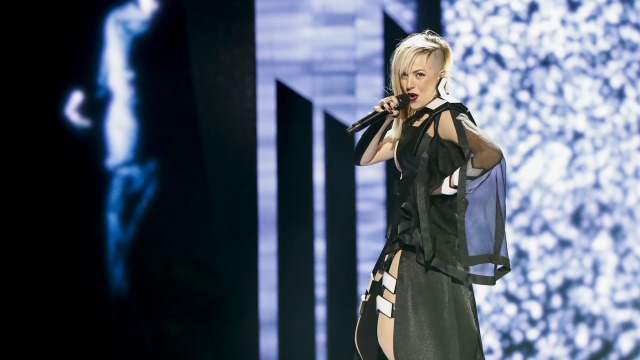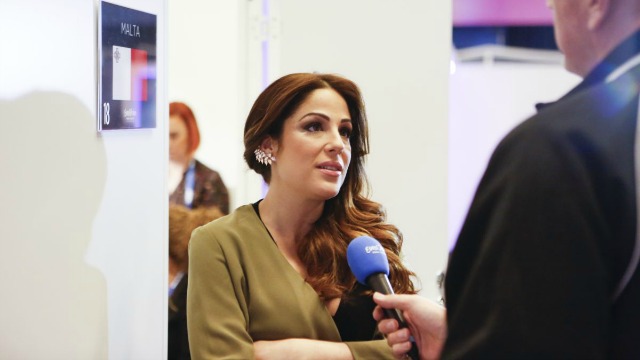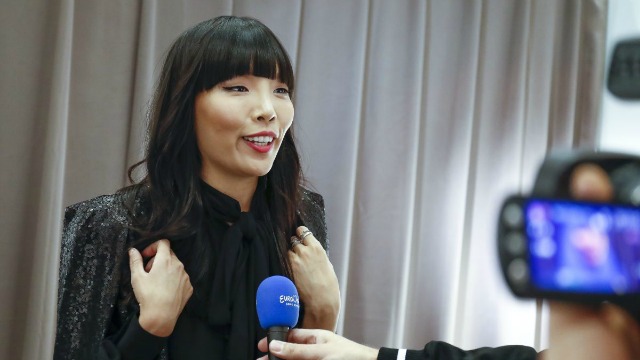With a prime time slot and an international audience in the hundreds of millions, the Eurovision Song Contest has proven to be an effective star-making vehicle for new and upcoming talent over the years. However, the Contest also presents an attractive platform for more established artists looking to promote new material or expand their audience into new territories.
“Celebrity” takes two forms in a Eurovision context, and examples of both are present in this year’s lineup. There are popular returning artists – often beloved by hardcore fans, but perhaps less recognisable to the casual viewing audience at home. Then there those who are genuine household names – acts such as Blue, Bonnie Tyler and Cascada who arrive at the contest with a profile and a back catalogue strong enough to garner a glimmer of recognition from most viewers, even if it’s no more than “Wait a minute, isn’t that…?”
In the returning artists camp this year, we can find no fewer than seven participants with past Contest form – Deen, Poli Genova, Bojan Jovović, Ira Losco, Kaliopi, Donny Montell and Greta Salome. A second bite at the Eurovision cherry can be an appealing prospect for many reasons – this year, the returnees hail from countries with smaller music industries, and the majority are jobbing musicians for whom even an unsuccessful participation at the Contest represents greater rewards than it poses risks.

Bulgaria’s Poli Genova is one of several artists making a return trip to Eurovision this year.
Photo: Eurovision.tv
The frequent booking of well-liked former participants such as Krista Siegfrids and Hera Björk – neither of whom set the scoreboards alight in their respective years – at various gigs and events throughout the Eurovision season is testament to the financial benefits of consolidating your position as a fan favourite. This year, Poli, Donny and Greta in particular seem likely to come out of this year with much busier calendars than they could have expected had they turned down the Eurovision ticket, even if their songs crash out at the semi final stage.
For the artists who have already reached the big leagues prior to the contest, the stakes are higher. Comeback kids Kaliopi and Ira Losco blur the line between Eurovision recognition and bona fide celebrity with long-established careers that have taken them beyond their national borders, while Russia, Ireland and Australia are fielding acts with international recording and performing experience at the highest level. Just taking part isn’t enough – failure to reach the final would be considered a crushing disappointment for artists of their calibre, and the potential for local backlash is high.
The press meet and greets for these performers are an interesting insight into the delicate balancing act required of artists who have more than professional pride at stake in this competition. Ira Losco, Nicky Byrne and Sergey Lazarev are classically media trained, clearly aware of their status but canny enough to diplomatically bat away any questions that treat their professional advantage as a foregone conclusion.

With years of music industry experience behind her, Ira Losco knows how to play the media game.
Photo: Eurovision.tv
Dami Im and Kaliopi represent contrasting ends of the celebrity spectrum. Im has only been famous since 2013, and her road to success was reality television, a format which made a virtue of her endearingly dorky personality. Consequently, she’s a warm and engaging interviewee, with a self-deprecating streak that reads as genuine rather than scripted.
A more senior performer who has little left to prove at this stage in her career, Kaliopi is a complete riot at her meet and greet. She’s fully aware of her status as the diva of this year’s competition, and it’s a role she plays to the hilt. She kicks off the press conference in typically flamboyant style, admonishing the assembled press for making confectionary-themed puns at the expense of her song Dona. “If you all like Donuts so much, here! Have Donuts… and never ask me about this again!” she shrieks, before beckoning an army of lackeys into the press hall bearing plate upon plate of Dunkin Donuts’ finest. The crowd laps them – and her – up.
For the broadcasters, the appeal of a star turn is obvious, particularly in the absence of an established national final format. A big name can help boost domestic ratings and bring the experience and financial backing to put together a higher calibre of performance, theoretically placing them at an instant advantage compared to less seasoned performers for whom the pressures of the Eurovision stage will be a lot further outside their comfort zone.

Dami Im comes to Eurovision with an established fanbase and a winning personality – but crucially, she also has one of the strongest songs and stage concepts in this year’s lineup.
Photo: Eurovision.tv
The approaches of Australia and Ireland this year perhaps best demonstrate the advantages and limitations of playing the fame game at Eurovision. The former are facing their first contest without auto-qualification, and failure to qualify would be disastrous at this early stage of building up the Eurovision brand at home. SBS have taken no risks by pairing Dami Im with a very strong, contemporary pop ballad which, if it wasn’t specifically written for the Eurovision Song Contest, certainly lends itself to a powerful, high-concept live TV performance – which, on the strength of the early rehearsals, is exactly what the singer and her team have delivered.
After two years spent wallowing in the semis, Ireland are also banking on the star power of Nicky Byrne to ensure they have a presence in the Saturday show this time around, but their strategy appears to have begun and ended at the casting stage. As I learned in my discussion with Ireland’s HoD last month, Nicky Byrne brought Sunlight to RTÉ as a finished package, and while it’s a catchy and professional effort, it’s also rather limp and anonymous. Watching the rehearsals, it’s hard not to feel that without the Westlife connection, it’s not an entry that would be on anybody’s radar, and for all his experience, Byrne isn’t an engaging enough performer to elevate it. Australia are harnessing Dami’s star quality to enhance an already competitive package, while Ireland are hoping to sneak through on name power alone – and they only need look over at the UK’s run from 2011–2013 to see how easily this tactic can go awry.









